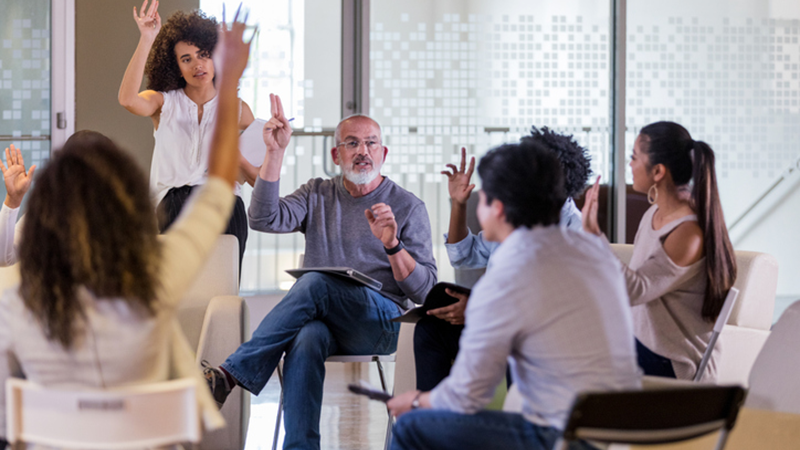What is HOA insurance and what does it cover?



If you own your home, whether it’s a stand-alone structure, a condo or mobile home, it’s likely that you have insurance coverage to protect your investment in your property. That insurance covers your buildings and possessions, as well as offering liability insurance. If your home is part of a homeowners association (HOA), your HOA dues may also go toward HOA insurance, referred to as an HOA master policy. This coverage focuses on common areas such as pools or playgrounds, and helps both you and the association avoid catastrophic fees in the event of a covered peril. In this guide, Bankrate’s insurance experts explain what HOA insurance is, what it covers and why it should matter to you.
What is an HOA master policy?
Your HOA likely has a “master insurance policy,” which is coverage that your HOA buys to protect itself against insurance claims. However, the master policy does not only serve your HOA. It also helps protect you from having to cover the cost of liability expenses or repairs to common areas passed along to you in the form of special assessments.
HOA master policies typically cover two things:
- Property damage: The master policy protects the common areas much in the same way homeowners insurance protects a home. If a covered loss, like a fire or wind incident, damages a shared space for which your HOA is responsible, this portion of the policy could cover the repairs.
- Liability: Suppose someone slips by the pool and decides to sue your HOA. The fees associated with the lawsuit will likely be expensive, potentially so much so that member dues will not be enough to cover them in full. The liability portion of your HOA’s master policy helps protect you from a special assessment to cover the cost of defending your HOA in court. However, the coverage generally only applies to shared public areas, such as a lobby or community playground. It would not apply if a guest injures themselves within the walls of a homeowner’s living area.
HOA fees usually cover maintenance costs to help maintain the common areas of your neighborhood or building. Your HOA dues likely also help pay for the insurance policy. The policy payments are usually divided and each member within the HOA pays an equal fee towards the policy. However, the fees may be lower or higher depending on each member’s access to amenities and other features. If an HOA member does not pay the fees, the HOA could go through the collection process and file a civil suit against the homeowner. This may affect the homeowner’s credit score and future ability to buy a home or be approved for another large purchase.
What HOA insurance covers
Although every HOA insurance policy is likely to differ in the details, generally speaking, the coverage extends to common areas and shared structures that are maintained by the HOA. This may include:
- Pools
- Playgrounds
- Lobbies
- Clubhouses
- Fitness centers
- Hallways
- Building exteriors
- Mechanical systems
- Fences, signage and lighting
- Gardens and landscaping
- Sheds and storage areas
If a covered peril causes damage to one of these areas, insurance will cover the costs, minus any deductible. For example, if lightning strikes a utility shed used by the association for gardening supplies and mowers, and it burns down, it will likely be covered by the policy.
HOA coverage is also likely to include liability insurance. This type of coverage helps pay for medical or legal costs if someone is injured in a common area, such as a pool or playground.
What HOA insurance doesn’t cover
HOA insurance does not cover damages or injuries that occur in individual units, whether these are freestanding houses, townhouses or some other dwelling unit. If you live within an HOA, you are responsible for purchasing your own homeowners insurance, and in some cases, may be required to do so by the association.
The type of insurance policy you purchase will vary, but it is likely to be HO-3 or HO-5 insurance if your home is freestanding, or an HO-6 policy if you have a condo. This will cover insurance claims that are specific to your living spaces and private property.
HOA insurance vs. home insurance
If you mortgage a house in an HOA, your lender will typically require you to purchase homeowners insurance. A standard home insurance policy offers coverage for your home’s structure, other structures on your property, personal property, guest medical payments, liability coverage and additional living expenses.
Your HOA insurance and your home insurance don’t overlap. Your home insurance company covers your home, while the HOA’s insurance company covers shared areas and the liability of the association.
HOA insurance vs. condo insurance
If your home is a freestanding structure within your HOA, it’s clear where your policy ends and the HOA insurance begins. Any property you own is covered by your insurance, while all the association’s common property is the responsibility of the HOA insurance coverage.
It is a bit more murky if you own a condo. Although you may be required to purchase your own HO-6 policy, your condo’s HOA insurance policy may work in tandem. However, not all condo associations work the same way, and there are a few different types of coverage that your HOA’s master policy may have:
- Bare walls coverage: This is the simplest type of dwelling insurance for condos, and it covers the bare structure of the overall building. It will include common areas such as lobbies and infrastructure such as plumbing and HVAC systems. It does not include your condo’s interior or anything in it.
- Walls-in coverage: Also called single-entity coverage, this type of insurance covers your unit’s structure and infrastructure, as well as any permanent installations, such as kitchen cabinets. It is likely to include coverage for drywall, paint, flooring, cabinetry and light fixtures, but any improvements made by the homeowner would not be covered.
- All-in coverage: The most comprehensive of the three, this pays for damage to your unit’s structural elements as well as any improvements you have made to the property. If you’ve remodeled the kitchen, for example, the custom cabinets you installed are likely to be covered.
When you purchase a condo in an HOA, it’s a good idea to ask questions to find out what type of coverage the HOA has on the property. That will help you know what you need to buy in the way of insurance that will dovetail with the association’s coverage, but not overlap it. You’ll also probably want to ask about any exclusions to the association’s coverage. For example, a master policy may exclude non-standard fixtures such as imported tile or a pricey stained-glass window.
I'm on the top floor of a condo, and we had some intense rains last winter that leaked into my ceiling. This was the first time I had to deal with something like this as a homeowner, so I was worried. The damage was inside my unit, after all. I thought maybe I’d have to pay at least a portion and deal with my home insurance. Hearing from the HOA that wasn’t the case was a relief! The HOA’s management company hired contractors to fix the leak and the damage (they had to rip off some of the ceiling and drywall).— Ana Staples, Bankrate Lead Credit Card Writer
Do you need loss assessment coverage?
HOA members can often add loss assessment coverage through their homeowners insurance policy. This coverage helps cover a portion of damage or loss in common areas so that you might avoid paying your portion of the expense out of pocket. For example, if a lawsuit is costly and exceeds the coverage limits of your HOA’s master policy, those additional costs may be spread among homeowners in the HOA. Loss assessment coverage may protect you financially from these costs.
Whether or not you need loss assessment coverage likely depends on your HOA’s organization structure, HOA features, potential perils in your region and more. Speaking with a licensed insurance agent may help you decide if this coverage is applicable for you.
Frequently asked questions
Why we ask for feedback Your feedback helps us improve our content and services. It takes less than a minute to complete.
Your responses are anonymous and will only be used for improving our website.
You may also like

Escrow insurance: What is it and when do you need it?

The difference between homeowners insurance and hazard insurance

Homeowners insurance vs. co-op insurance vs. condo insurance

What does homeowners insurance cover?
